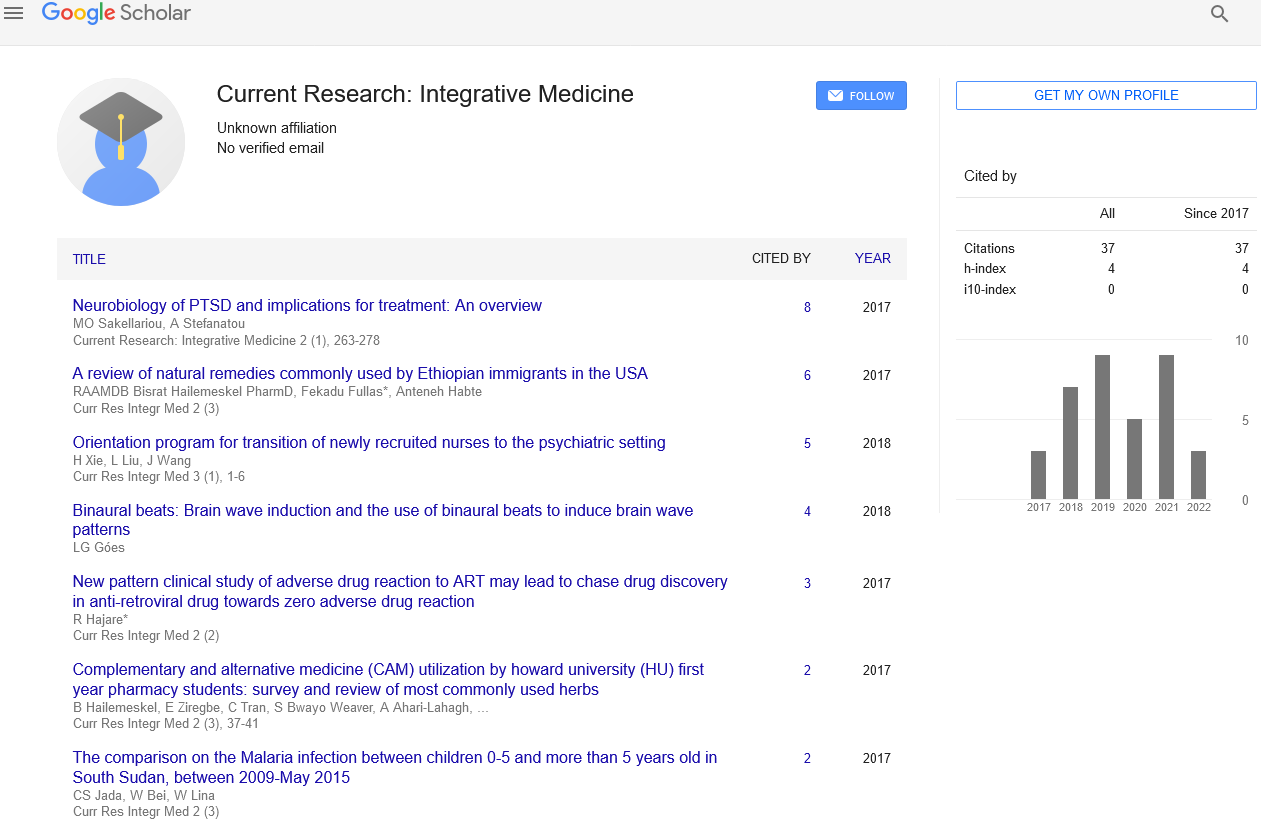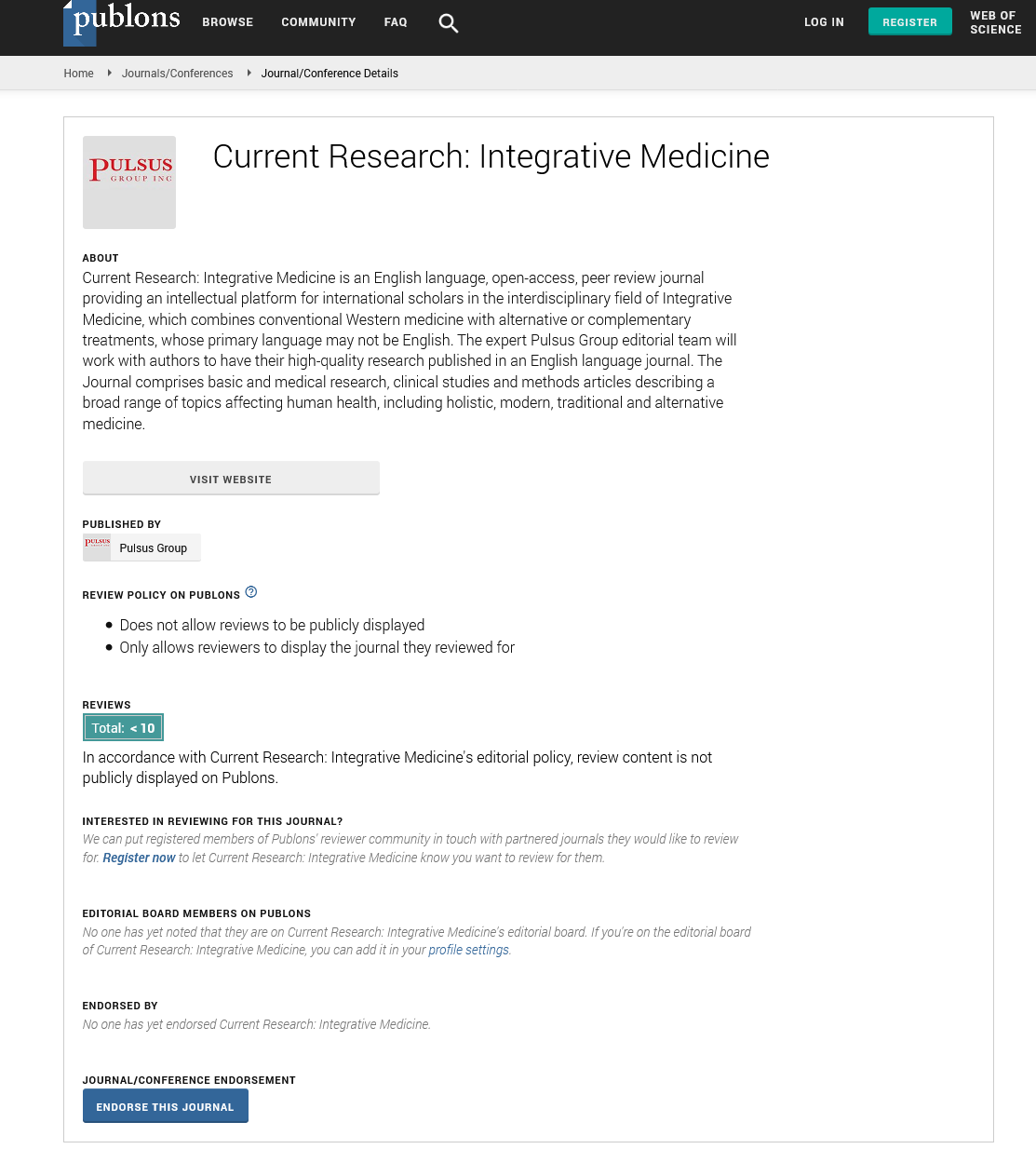
Sign up for email alert when new content gets added: Sign up
Treating the Next Generation: why and how we need to Treat the over 70's Differently
4th International Conference on Alternative Medicine, Medicinal Plants
April 18, 2022 | Webinar
Michael McMullen
University of Westminster London, UK
Keynote: Curr Res Integr Med
Abstract :
In 1900, the worldwide average life expectancy was less than 50 years, by 2001 it had increased to between 65 and 75 years worldwide, excepting Africa where it was 50 years. Consequently, most traditional medicine therapies have been developed by treating patients rarely older than 65 years. Can we justify treating the older patients with therapies largely developed on those under 50 years or do we need to modify our therapies for those more than 70 years? As our knowledge of physiology develops it has become clear that older people do not just look old, they have another physiology. From around 40-45 years things change, but may have little immediate effect on health, because there is often sufficient reserve capacity to avoid symptoms. For example, kidney mass decreases 1% per year from 40 years. At 60 years the kidneys have 80% of the 40-year mass and few problems are noted, however by 70 and 80 years this remaining mass has been reduced to 70% and 60% respectively. Is this reduction in kidney mass a reason why gout is 5 times higher in persons aged 70-79 years than in those younger than 50 years? For the younger patient, kidney stimulation to treat gout might be appropriate but would it be suitable for the 80- year patient? An alternative approach for the elderly is the use of charcoal tablets. These absorb uric acid in the small intestine – this organ has been reported to excrete as much uric acid per day as one kidney. Other systems also change with aging, and it may be that some diseases of the elderly are both hardwired and modifiable. Studies suggest that these diseases may include cardiac insufficiency, dementia, diabetes, and muscle wasting. A few of the underlying medical conditions that increase the risk of developing severe COVID 19 disease: Cancer, Cardiac Disease, Chronic Renal Disease, COPD, Diabetes, High Blood Pressure, Weakened Immune System, and Sickle Cell. If there is a comorbidity, the presence of two or more medical conditions, an individuals’ immune system is weakened even more so.
Biography :
Michael McMullen (PhD) has published studies both on bitter tasting plants and respiratory-cardio integration. Michael trained as research psychologist at UNSW in Sydney Australia in the 1970s before working as an audiologist for the Australian Commonwealth Health Department. Concurrently he studied medicinal herbalism and nutrition at Nature Care in Sydney. In the mid-1980s he moved to Sweden and worked in health spas for several years before establishing a herbal practice in Stockholm. In 1998 he established a professional training course. During 2005 to 2012 he undertook doctoral studies at the University Of Westminster University, London, UK. He researched autonomic mechanisms by which bitter tasting plants could improve digestion, studying coffee, decaffeinated coffee, caffeine and two plants referred to as eupeptics, gentian (Gentiana lutea) and wormwood (Artemisia absinthium). Today, Michael lives in Sud de France. He continues his herbal practice and teaching activities in Stockholm.





